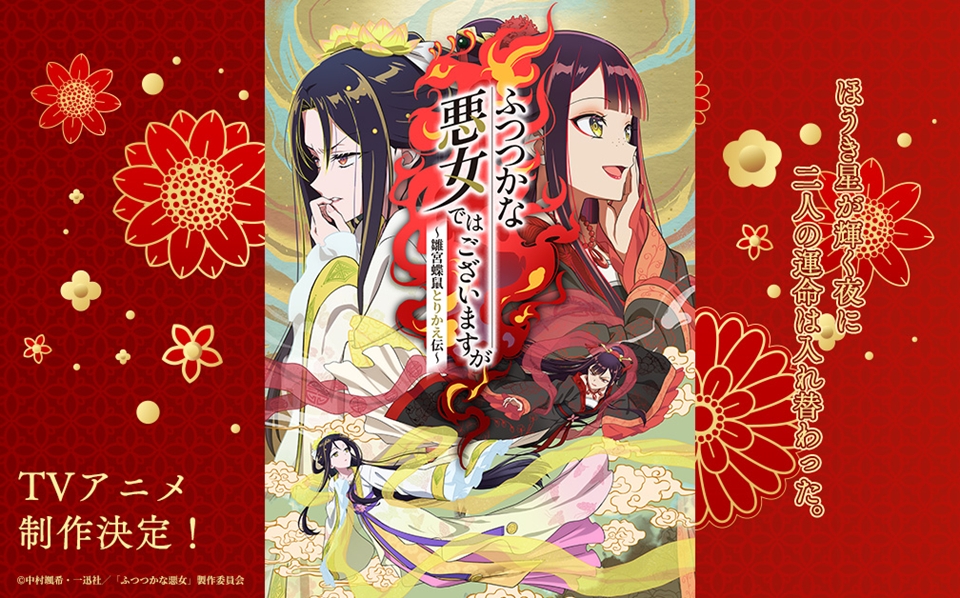Silent Hill is an iconic horror video game franchise for a reason. With its unsettling atmosphere, themes, and monsters, gamers have been traversing through the fog for decades. What can we say besides, "In my restless dreams, I see that town…" The town in question has a whole new look in Silent Hill f , one that, according to Silent Hill series producer Motoi Okamoto, embraces Japanese horror and its tendency to "focus on beauty and terror at the same time." In our interview, alongside Silent Hill f writer Ryukishi 07 and composer Akira Yamaoka, the team discussed this new shift in Silent Hill , that whole "beauty in terror" tagline, and how being in a happy state of mind is the perfect time to delve into horror. Thank you for taking the time to speak with me about Silent Hill f . Can you all introduce yourselves to our readers? Motoi Okamoto: I am Okamoto Motoi, the producer for the Silent Hill series. I am honored to be able to present this new Silent Hill game that will be set in Japan. Ryukishi 07: And I am Ryukishi 07. I am the script writer for Silent Hill f . Akira Yamaoka: I am Akira Yamaoka. I will be handling the composing for Silent Hill f . I’ve been composing the music for many Silent Hill titles throughout, so I am happy to be presenting this game as well. In the behind-the-scenes video for Silent Hill f , Okamoto-san says that Silent Hill fused the essence of Western and Japanese horror, but as the series progressed, it felt like the Japanese essence had been lost, leading to Silent Hill f completely embracing Japanese horror. What elements do you feel the game needed in order to do that, and how do you feel it adds to the ongoing lore of Silent Hill ? Okamoto: We believe that fans of the Silent Hill series place very heavy emphasis on atmosphere, and we believe that’s something we’ve managed to focus on for Silent Hill f . We’ve placed a level of importance on the quiet sense of dread. When it comes to the lore, this is a game that’s completely independent from the rest of the series, so it might not add anything specific to the lore. But we do have a couple of Easter eggs that a lot of fans will be able to look forward to. RELATED: Your Halloween Anime Watchlist, From Kooky to Spooky Last year’s surprise release, Silent Hill: The Short Message , also featured a teenage girl as the lead playable character. What has it been like to introduce this new generation of characters, and will we see similar themes explored in Silent Hill f ? Okamoto: When it comes to The Short Message , this was a game that was targeted toward a younger demographic that may not be too familiar with Silent Hill as a series, so that’s why we decided to go with a younger protagonist. Since that game, we’d like to explore some further themes of social anxiety and things like that. Ryukishi 07: When it comes to this game [ Silent Hill f ], I believe that she [Hinako Shimizu] symbolizes the choices she has to make and the suffering she has to go through. I personally believe that with what she is going through, she probably has the most fears and anxieties when trying to move forward. That’s what I wanted to place the most focus on. She came to be mainly because she embodies what I envision when I think of a struggling, and very emotionally driven, protagonist. Silent Hill f is working with the concept, “Find the beauty in terror.” What is it about terror that makes it so beautiful? Why is this a concept you want others to experience? Okamoto: My personal understanding when it comes to Japanese horror is that it tends to focus on beauty and terror at the same time. I believe that’s a common trope when it comes to Japanese horror, that you find something that’s simultaneously beautiful and terrifying. This is why I decided to hone in on this theme. I also believe this is something you can find in Ryukishi 07’s style of writing. I think this is something he places a clear focus on. For Ryukishi-san, what does it feel like to be adding your spin on such a beloved horror franchise? Were you familiar with Silent Hill going in, and were you surprised to see it taking this new direction? Ryukishi 07: I am very much familiar with the series. I played the original, from Silent Hill down to Silent Hill 4: The Room . To be honest, the first time this offer came around, I was very tense and anxious. This is obviously a very famous series with a strong pedigree, but once I actually started writing it, I felt quite at home with the project. I believe this was an opportunity where I could very much spread my wings and jump into the project. RELATED: RESENTER Creator Gigi Murakami Takes Us on a Beautifully Haunting Journey Through Her Horror Manga Anime fans are likely familiar with some of your works, Ryukishi-san, like the Higurashi When They Cry series, which also centers around rural high school students coping with supernatural horror events. Are there any learnings or observations you’ve taken from those past works to this story? Ryukishi 07: I think the very reason that I was invited to this project was because of what I managed to accomplish with Higurashi and my past works (laughs), but I believe that Higurashi and Silent Hill f , in particular, are two very separate entities. They deal with very different themes. There are many lessons that I’ve learned from the experience that I’ve had on my past projects, but they were not explicitly incorporated into Silent Hill . I decided to be very careful and respectful toward Silent Hill as its own entity. Music also plays a big part in the tension felt in Silent Hill . Yamaoka-san, since you have such an established history with the series, were there any shifts you had to make in the music to fit this new setting? Yamaoka: When it comes to the music that I’ve provided for the Silent Hill games, the way I approached things was that I took my understanding of Japanese culture, Japanese tastes toward music and entertainment, and I filtered them in a way that’s more accessible and palatable to a Western audience. So I took elements of Japanese music and music design, and converted them into styles like Rock music and other tastes that are more approachable to Western audiences. But since this game [ Silent Hill f ] takes place in an explicitly Japanese setting, I decided to take away all those adjustments I made for past games, and I turned this into a 100% purely Japanese type of approach — something that I’ve wanted to do in past projects, but I decided to make adjustments for those. So in this game, I didn’t necessarily make any drastic shifts; it’s more like I decided to remove all the filters that I had for past games, and I conveyed 100% of what I intended to do. Some might think that concentrating on such dark material and music might bring some gloom into your life, but you’ve actually said the opposite, Yamaoka-san . You’ve said in the past that it’s working on happier music that makes you feel depressed. Is that statement still true 10 years later? Yamaoka: I’d like to try to correct and convey as directly as possible what I had meant. This may be something Ryukishi 07 also sympathizes with, but as part of the creative process, for me personally, I believe that it’s important to feel happy and enjoy life’s moments. That’s an important part of creating more gloomy and depressing content. If I were sad or depressed the whole time, I probably would not be able to conjure the energy to engage with the creative process. It’s not something I necessarily, or explicitly, focus on, but I do try to stay happy and joyful, as much as I can, because I believe that allows me to be better at directly facing the sad and depressing moments. I believe this is what allows me to face and tackle the darker themes in general, so my personal approach toward the creative process hasn’t really changed over the years. So you have to feel that happiness in order to approach that darkness? Yamaoka: I believe this is a common thing for all humans. Everybody has some kind of darkness and some kind of potential to feel joy in their hearts. I believe it’s important to try and stay as happy as possible in order to cherish those moments and confront both of those emotions. RELATED: 10 Supernatural Anime That Highlight How Unique the Genre Is Here's my last question. Now, I admit, I'm a bit of a coward when it comes to horror. That said, I always find myself coming back to it, especially with games like Silent Hill . What do you think draws us to horror? What inspires you to create horror stories, particularly in video games? Ryukishi 07: I believe that there are two types of situations that draw people toward horror. One is a type of sympathy, where you can sympathize with someone placed in a horror setting. It’s a way for somebody to grasp the idea of, “It’s not just me that’s feeling this way. I’m not the only one who feels scared under these circumstances.” It’s a way for somebody to connect with the content. The second thing, and I believe this probably overlaps with some of the other previous responses, but I also resonate with the belief that you need to be in a happier state in order to fully enjoy horror. I believe that in darker, more depressing times, people seek happier, brighter content, and in more stable times, people tend to seek out the type of thrill in horror as a way to reflect on and reaffirm their current sense of happiness. It’s not simply just to see content and feel like, “I’m glad I’m not trapped in the other world,” but a way for someone to reflect on their current state of happiness through horror. Just one thing to quickly add to that! For anybody who plays Silent Hill f , you are free to feel however you like! You can both sympathize with the main character and feel like, “I’m glad I’m not in her shoes,” or somebody can go, “I completely understand how I feel,” and slam those otherworldly entities with a metal pipe.


